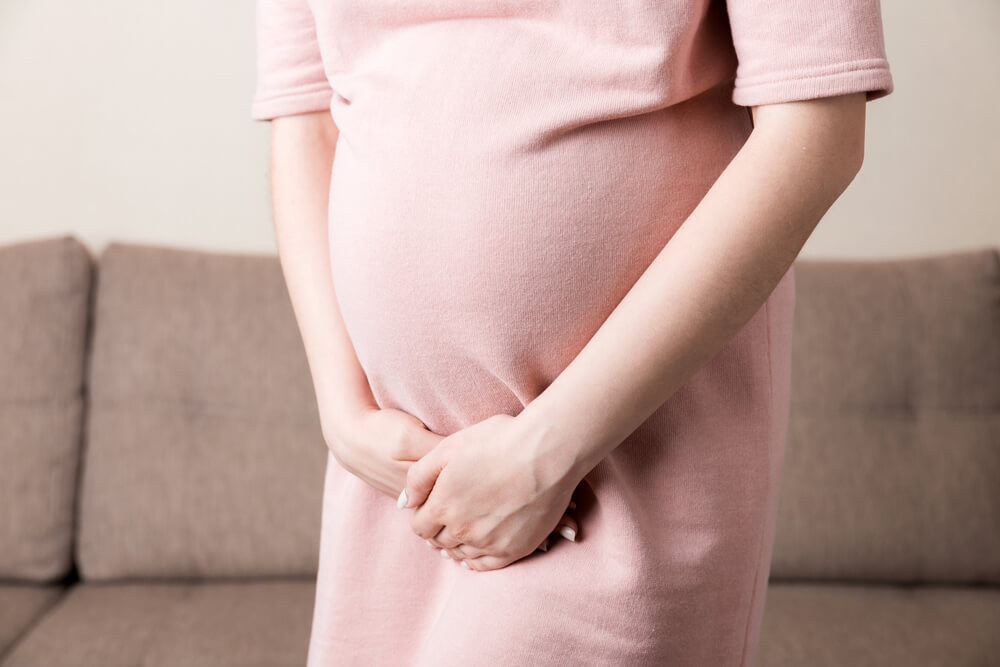Welcoming the miracle of pregnancy comes with its share of changes and challenges, and one aspect that often remains unspoken is urinary incontinence. This article tries to get into all the intricacies of stress incontinence during pregnancy, urinary incontinence in pregnancy, and the nuances of bladder leakage during this transformative period. Furthermore, we will explore the postpartum phase and its relationship with incontinence, shedding light on effective management strategies.
Medical centers such as University Park OBYGN offer their patients medical support through their pregnancy journey, including all the potential complications they might encounter. Having expert support helps patients feel more relaxed and comfortable during their pregnancy, so issues like urinary incontinence in pregnancy feel like less of a burden.
Stress Incontinence in Pregnancy

Understanding stress incontinence in pregnancy is essential for expectant mothers as they navigate the remarkable journey of bringing new life into the world. Stress incontinence is a common occurrence characterized by the involuntary leakage of urine during activities that exert pressure on the pelvic floor, such as coughing, sneezing, or laughing. This phenomenon is primarily attributed to the combined effects of hormonal changes and the physical strain imposed on the pelvic region by the growing uterus.
The surge in progesterone, a hormone integral to pregnancy, can lead to a relaxation of pelvic muscles, compromising bladder control. Simultaneously, the expanding uterus places increased pressure on the bladder, diminishing its capacity and making it more susceptible to leakage. By grasping the intricacies of stress incontinence, expectant mothers can take proactive steps to manage and mitigate these symptoms, ensuring a more comfortable and confident pregnancy experience.
Factors Contributing to Urinary Incontinence in Pregnancy
Several factors contribute to urinary incontinence during pregnancy. Here is a list of the most common ones:
- Hormonal Changes: The surge in progesterone during pregnancy can lead to a relaxation of pelvic muscles, affecting bladder control and contributing to urinary incontinence.
- Pressure from Growing Uterus: The expanding uterus exerts pressure on the bladder, diminishing its capacity and making it more challenging to control urination.
- Increased Blood Flow: Pregnancy causes increased blood flow to the pelvic region, potentially impacting the sensitivity and responsiveness of the bladder muscles.
- Weight Gain: Excess weight gain during pregnancy can put additional stress on the pelvic floor, exacerbating the risk of urinary incontinence.
- Previous Pregnancies or Childbirth: Women who have had multiple pregnancies or difficult childbirth experiences may be more prone to urinary incontinence due to the cumulative impact on pelvic structures.
- Genetic Predisposition: A family history of urinary incontinence may increase the likelihood of experiencing it during pregnancy, suggesting a genetic component.
- Age: Older pregnant women may be more susceptible to urinary incontinence due to the natural aging process, which can affect the strength and elasticity of pelvic muscles.
- Constipation: Straining during bowel movements, a common issue during pregnancy, can stress the pelvic floor muscles and contribute to urinary incontinence.
- Chronic Coughing: Persistent coughing, whether due to pre-existing conditions or pregnancy-related factors, can strain the pelvic floor and lead to bladder leakage.
- High Impact Exercise: Engaging in high-impact exercises without proper pelvic floor support can contribute to urinary incontinence during pregnancy, especially if the exercises put excessive strain on the pelvic area.
Bladder Leakage During Pregnancy
Bladder leakage during pregnancy is a common symptom of stress incontinence. Bladder leakage during pregnancy is a common concern that many expectant mothers face, highlighting the intricate interplay between the growing uterus and the bladder. As the uterus expands to accommodate the developing baby, it exerts increasing pressure on the bladder, often resulting in a heightened sense of urgency and, in some instances, involuntary leakage.
This phenomenon is particularly prominent during activities that put additional stress on the pelvic floor, such as coughing, sneezing, or laughing. Bladder leakage during pregnancy is typically associated with stress incontinence, a condition influenced by hormonal changes, physical strain, and the unique demands of gestation. Recognizing these symptoms early on allows pregnant individuals to take proactive steps, such as pelvic floor exercises and lifestyle adjustments, to manage and alleviate the challenges associated with bladder leakage, fostering a more comfortable and confident pregnancy experience.
Effective Strategies for Managing Pregnancy-Related Incontinence

There are some strategies experts recommend so you can try and manage urinary incontinence in pregnancy. Here are the most popular ones:
- Pelvic Floor Exercises (Kegel Exercises): Engage in regular pelvic floor exercises to strengthen the muscles responsible for bladder control. Kegel exercises, in particular, are known to be effective during and after pregnancy.
- Maintain a Healthy Weight: Manage weight gain through a balanced diet and regular exercise to reduce excess pressure on the pelvic floor, thereby alleviating stress on the bladder.
- Stay Hydrated with Caution: Monitor fluid intake, ensuring adequate hydration without excessive consumption. This helps maintain a healthy balance and supports proper bladder function.
- Timely Voiding Habits: Establish regular and timely voiding habits to avoid unnecessary pressure on the bladder. Ignoring the urge to urinate can contribute to incontinence issues.
- Avoid Excessive Caffeine and Carbonated Beverages: Limit the intake of caffeinated and carbonated beverages, as these can irritate the bladder and exacerbate incontinence symptoms.
- Prenatal Yoga and Low-Impact Exercise: Engage in prenatal yoga and low-impact exercises that support the pelvic floor without placing excessive strain on it. Consult with a healthcare professional for suitable exercise recommendations.
- Biofeedback Therapy: Consider biofeedback therapy, a technique that uses electronic monitoring to help individuals gain awareness and control over pelvic floor muscles, aiding in better bladder control.
- Maintain Good Posture: Practice good posture to alleviate pressure on the pelvic region. Proper alignment can contribute to the overall health of pelvic floor muscles.
- Physical Therapy: Consult with a physical therapist specializing in women’s health to receive targeted exercises and guidance tailored to manage and prevent pregnancy-related incontinence.
- Use Supportive Undergarments: Invest in supportive undergarments designed for pregnancy to provide additional comfort and confidence during periods of increased pressure on the bladder.
Postpartum Incontinence
The journey does not end with childbirth. In fact, postpartum incontinence is another facet that many women face. The stress exerted on the pelvic floor during labor can contribute to ongoing bladder control issues. Understanding and addressing postpartum incontinence is crucial for a smoother transition into motherhood.
Pregnancy and Bladder: Navigating the Changes
Throughout pregnancy, the relationship between the growing uterus and the bladder undergoes dynamic changes. As the baby develops, the bladder experiences varying degrees of pressure, influencing urinary patterns. Recognizing these shifts and adopting proactive measures can empower expectant mothers to manage bladder health effectively.
Call Us!
In summary, urinary incontinence during and after pregnancy is a prevalent yet often overlooked concern. Acknowledging the connection between stress incontinence, pregnancy, and postpartum experiences is crucial for informed decision-making and effective management. By implementing lifestyle adjustments, engaging in targeted exercises, and seeking professional guidance, women can navigate this aspect of pregnancy with confidence and embrace the transformative journey into motherhood.
If you feel like you need additional support and guidance from medical professionals, reach out to our expert team and find out why we are one of the best OBGYN services in the country. Contact us today!


